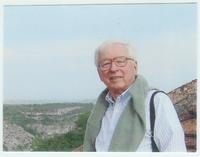Campus News
In Memoriam: Robert Durling
Robert M. Durling, professor emeritus of Italian and English Literature at UC Santa Cruz, died May 21st.

Robert M. Durling, professor emeritus of Italian and English Literature at UC Santa Cruz, died May 21 in Oakland, Ca. He was 86.
Born March 11, 1929,in New York, Durling graduated from Manhasset High School in 1946. He attended Harvard College, graduating in 1950, and in 1958 earned a Ph.D. in comparative literature from Harvard University, where he studied Dante with Charles S. Singleton. Durling taught briefly at Haverford College (1954-56) before going to the Department of Romance Languages at Cornell University in 1957.
Durling’s experience in the intellectually lively Cornell of the early ’60s yielded The Figure of the Poet in Renaissance Epic (Harvard University Press, 1965), a study of the inscribed figure of the author in early modern texts both English and Italian. The book’s chapter on Ariosto’s Orlando Furioso details how Ariosto’s poem engaged the crises of 16th century Italy, and helped to free Ariosto studies from the influence of Benedetto Croce, sparking subsequent scholarship.
In 1966, Durling joined the literature department of the newly founded University of California, Santa Cruz. He was, in addition, a visiting professor at Princeton University, Stanford, UC Berkeley, and the University of Oregon. His scholarly work focused closely on Italian literature of the 14th century, and his Petrarch’s Lyric Poems: the Rime Sparse and Other Lyrics (Harvard, 1976), accompanied by Durling’s prose translations, remains a standard reference for English-speaking students. In 1990, Durling, with Ronald L. Martinez, published Time and the Crystal: Studies in Dante’s ‘Rime petrose’ (University of California Press), which claims that the formal principles of Dante’s four petrose poems are analogous to the structures of the cosmos, and thus display a “microcosmic poetics” that subsequently informs the Divine Comedy.
Durling’s work on Dante culminated with his prose translation – first achieved in a single six-week stretch in 1993 – of the entire Divine Comedy and his subsequent commentary and notes on the poem, done in collaboration with Martinez. Oxford University Press published Inferno in 1996, Purgatorio in 2003, and Paradiso in 2011. In 2013, Durling’s Paradiso translation was recognized by the Modern Language Association with the Aldo and Jeanne Scaglione Prize for a translation of a literary work.
Endowed with unbounded curiosity, Durling was equally at ease in Italian, French, and German. He was a demanding but generous teacher and scholar, and a musician. He played the bassoon for many years, and occasionally turned his hand to composition: his “Study for String Orchestra” was performed in 1971; his waltz, “La Maussade,” was recorded by the Baguette Quartette in 1998.
He is survived by his wife of 30 years, Nancy Vine Durling; three daughters by a previous marriage to Rita J. Kuhn: Rachel Durling, husband Michael Papciak, Berkeley, Ca.; Sarah Durling, husband Yonatan Shemmer, Sheffield, England; Ruth and Daniel Wiseman, Passaic, N.J., and five grandchildren. He was preceded in death by his son Kenneth Durling.
A memorial service will be scheduled in Berkeley in August.
See more at www.legacy.com/obituaries.